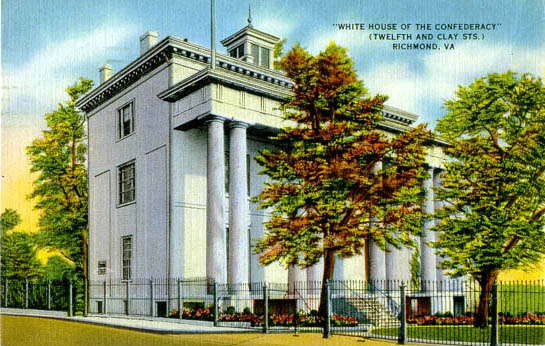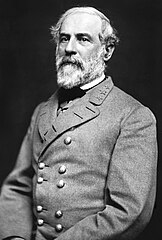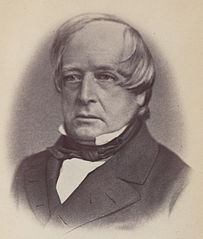
A Vacancy in the Cabinet
New Faces in the War Department
It is little doubt that in a time of war, one so calamitous as the American Civil War, those who manage the efforts from above feel the wounds from battles lost even thousands of miles away. Or at least, so it was for Secretary of War LeRoy Pope Walker, a man trying his best to direct a war with no military experience and declining health.
At the beginning of the war, Walker would make the bold claim that both Washington D.C. and Boston would fall before the end of 1861, so fierce was his confidence in the Southern cause. When Kentucky was lost and Polk's forces were broken, when the White House stood triumphant, when the war seemed far from over, Walker had been aghast, spending a few days attended to by his personal physician due to heart-related issues. Although back in action soonafter, and in better spirits over the following months, Walker's health would be regarded as a liability by Davis.
The fall of Nashville would prove to likewise be the fall of Walker, as news of Lyon's advance sent the man in a fit of momentary panic. While the following reports were more favorable and thus calmed down Walker, who had assumed the worst, the damage was done. In a series of private discussions, Davis inquired into the man's health, suggesting that he would be more happy abroad as a Confederate representative. Walker took the hint and tendered his resignation on April 14th.
And then was left a vacancy in one of the most critical seats on the cabinet. Davis had already prepared for this moment, being the instigator in Walker's resignation, and so had gone down his list of candidates. Owing to his policy in including as many states as possible, Davis took the candidates' residences as a serious consideration, and so it was that a handful of states remained in his eyes, namely North Carolina, Tennessee, Kentucky, and Virginia.
North Carolina was at first seem as a prudent point, especially given its perceived opposition to Davis in the form of its charismatic governor Zebulon Vance, a man who repeatedly clashed with the national government. However, the stock from North Carolina would be seen as untenable - those who could give recommendations, Bragg and Polk, were captured and dead respectively, while the remaining notable commanders such as D.H. Hill were of vital importance on the front.
Tennessee was another important candidate given its current importance as a battleground; perhaps what the populace needed was a sign of support and inclusion within the cabinet to rally spirits among the divisive populace. Both senators from the state were vocal in their thoughts on the situation - Senator Landon Haynes had warned of Unionist sympathies in the east and was a growing supporter behind restricted conscription, whereas Davis' personal friend Senator Gustavus Adolphus Henry had helped organize the construction of fortifications on the Tennessee and Cumberland rivers.
Davis envisioned Kentucky in much the same light, a state that needed Confederate revitalization to oust Union invaders. Two prominent candidates arose, the first obviously John C. Breckinridge. Previously Vice President of the United States, a senator and representative, and well-connected to the political scene of Kentucky and the South in general, Breckinridge was certainly a striking figure. However, a major detriment to his candidacy served to be his usefulness and the high opinion of him held by General A.S. Johnston, naming him "indispensable".
The second candidate was much moreso a dark horse. Major General Richard Taylor was the only son of President Zachary Taylor, a man who had created fame for himself as the youngest major general in the Confederacy, made more impressive by his lack of military education. Given high praise by Major General Richard Ewell and Lieutenant General Stonewall Jackson himself, Taylor was extremely well-versed in classical and military history. Still, much like Breckinridge, the sterling recommendations of his superiors was spoken with the tone of necessary possession - though Jackson would concede that he would like to see Taylor given a place to put his tactical prowess into more independent action.
And that left Virginia in Davis' purview, the home of the Confederate capital and where Davis would find his man.
George Wythe Randolph was born in Monticello in 1818, the grandson of Thomas Jefferson and Thomas Rolfe, a man whose very veins coursed with that of America. Attending preparatory schools in Massachusetts and Washington, Randolph's early adulthood was spent in as a midshipman in the U.S. Navy, simultaneously allowing him to attend the University of Virginia while in service.
Admitted to the bar in 1840, Randolph would become a successful lawyer, eventually becoming a figure in the Richmond community. As the American Civil War broke out, Randolph was chosen to participate in a special delegation to meet with Lincoln, where it was determined that the man would be resolute against secession. Upon returning, Randolph worked alongside the Virginian state government to
Thereafter, Randolph entered the Confederate army as a major and then a colonel of the artillery, where would participate most notably in the fortification of Newport News and the following skirmishes against Butler under the Army of the Peninsula.
By early 1862, he had become a brigadier general while his wife - Mary Randolph - likewise made the family prominent in Richmond proper, being an active supporter of the Richmond Ladies' Association. It was through a meeting between Mary and Davis' wife Varina that Randolph would be in the mind of the President. And when it was learned that Randolph had prior experience in military reform in Virginia, he became a serious contender and ultimately the choice.
Not holding a position important enough to cause issue, possessing prior and respected experience, and possibly rallying the Virginian and Richmond populace - the same that hounded Davis in papers - Randolph was seen as the right man. Beginning his tenure April 14th, the very same day that Walker departed, Randolph quickly set about transitioning the office to fit him, beginning first with a critical eye to the inefficiencies allowed by his predecessor.
Drafting a number of reports, most notably on proposals for conscription in reaction to the U.S. Enrollment Act. Time had yet to tell the effects of the change in leadership, but for Randolph himself, he began to understand the trials and tribulations of working with Davis. As he struggled with the twin devils of Lincoln and Davis, Randolph's tuberculosis and myriad of health complications because of it began to return, no doubt spurred on by stress. While adamant that he would perform dutifully, it was expected that his tenure would be a short one, especially so if he failed to prove himself in the coming months.


















